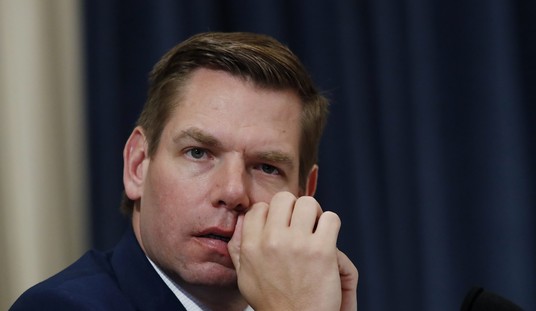The American Recovery and Reinvestment Act (ARRA) appropriated $7.2 billion to subsidize broadband deployment, including $2.5 billion to the Rural Utilities Service (RUS). Prior investigations have shown that RUS’ broadband subsidy programs were not cost effective, and often funded duplicative coverage in areas already served by existing providers….The evidence indicates that RUS’ history of funding duplicative service has continued under BIP, and that the current program is not a cost-effective means of achieving universal broadband availability.
So would you pay $7mil just to read Repair_Man_Jack on Redstate.com? Gad Zooks! Of course you would. I should just knock it off with the annoying rhetorical questions. Well, ok, so maybe one or two of you wouldn’t. At the price of $7mil, I can kinda’-sorta’ understand.
This begs another annoying, rhetorical question. What type of maroon would pay $7mil for Internet access? Nobody, and I mean nobody, would pay $7mil to partake of the spam, Viagra adds and annoying pop-ups. That’s why we have a government! Barack Obama’s American Recovery and Reinvestment Act did this for us. Not intentionally, but then again, most really stupid government boondoggles are not intentional.
President Obama promised as a candidate that everyone would have broadband internet. They could check the balance on their EBT cards much more rapidly that way. To be stupidly fair about this policy, it had to include households miles outside the gravity well of any major SMSA. Eiseneich and Caves examined efforts to expand broadband Internet into Southwestern Montana, Northwestern Kansas and Northeastern Minnesota. Nick Schulz describes how cost effective they found this form of stimulus to be.
The median household income in these areas is between $40,100 and $50,900. The median home prices are between $94,400 and $189,000. So how much did it cost per unserved household to get them broadband access? A whopping $349,234, or many multiples of household income, and significantly more than the cost of a home itself.
This initial number grows far more disconcerting. The programs were intended to be similar to the Rural Electrification Act undertaken in The Great Depression. However, the Rural Electrification Act suffered very little economic inefficiency from duplicative services.
In the 1930’s, just about nobody was wiring houses for juice. When the REA crews ran a trunk line down a small town’s main street, they could conceivably expect to enjoy at least some economies of scale. This wasn’t true of the broadband expansion. A lot of people in rural America had alternative strategies to get Internet connectivity. Schulz describes this inefficiency below.
Only 1.5% of all households in the region had no wireline access. And if you include 3G wireless, there were only seven households in the Montana region that could be considered without access. So the cost of extending access in the Montana case comes to about $7 million for each additional household served.
Of course the intellectual genius behind this project was defunct economist, John Maynard Keynes. He once suggested the following “Stimulus” to relieve chronic unemployment back in his day and age.
“If the Treasury were to fill old bottles with bank-notes, bury them at suitable depths in disused coal-mines which are then filled up to the surface with town rubbish, and leave it to private enterprise on well-tried principles of laissez-faire to dig the notes up again (the right to do so being obtained, of course, by tendering for leases of the note-bearing territory), there need be no more unemployment and, with the help of repercussions, the real income of the community, and its capital wealth, would probably become a good deal greater than it actually is.”
– The General Theory of Employment, Interest and Money (London: Macmillan, 1936), p. 129
Providing Internet access to The Great Flyover, at $7mil a household, may well be the functional equivalent of burying those bottles of treasury notes. I pity the fool who thinks our current government will properly remember where they’ve actually buried the wine bottles, or ever display the resourcefulness and endeavor to dig them back up again.













Join the conversation as a VIP Member